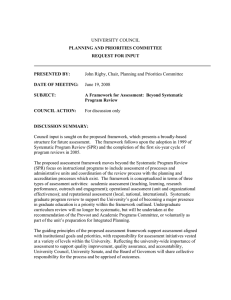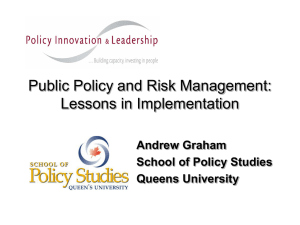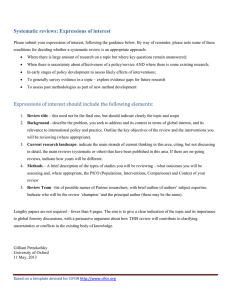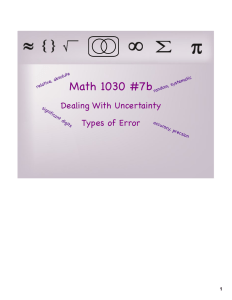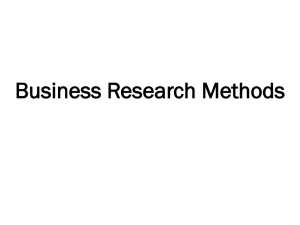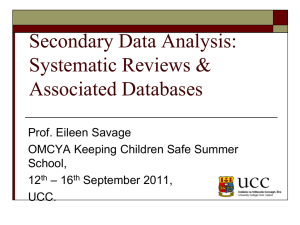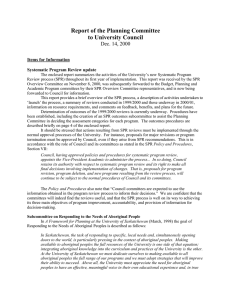UNIVERSITY COUNCIL PLANNING AND PRIORITIES COMMITTEE REQUEST FOR DECISION
advertisement
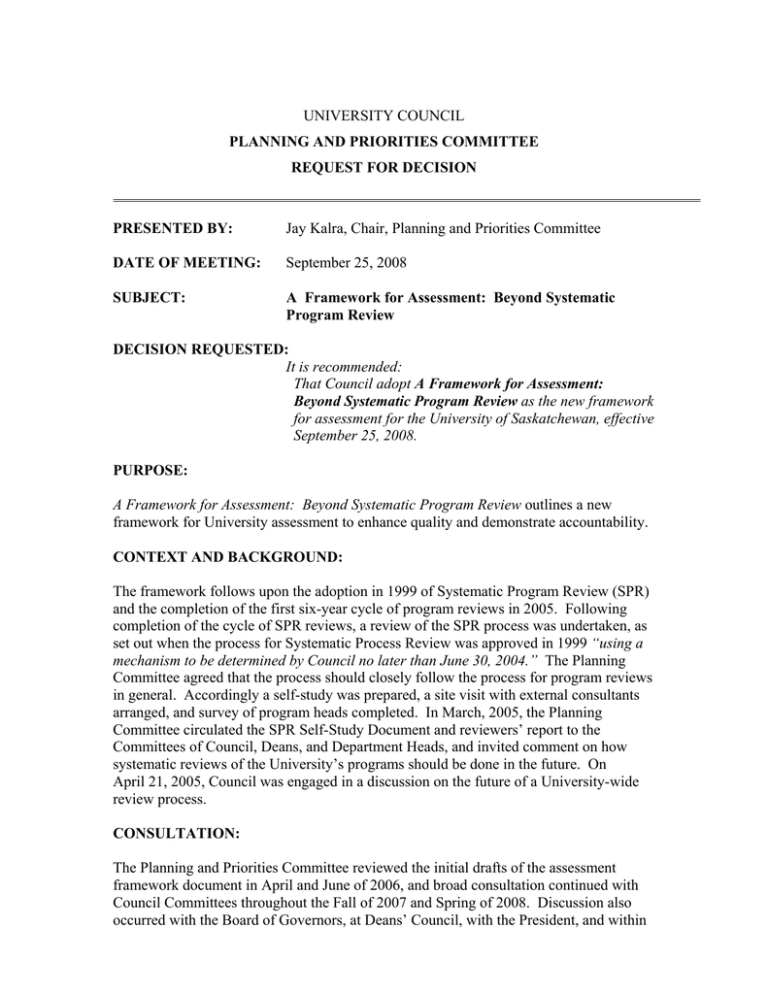
UNIVERSITY COUNCIL PLANNING AND PRIORITIES COMMITTEE REQUEST FOR DECISION PRESENTED BY: Jay Kalra, Chair, Planning and Priorities Committee DATE OF MEETING: September 25, 2008 SUBJECT: A Framework for Assessment: Beyond Systematic Program Review DECISION REQUESTED: It is recommended: That Council adopt A Framework for Assessment: Beyond Systematic Program Review as the new framework for assessment for the University of Saskatchewan, effective September 25, 2008. PURPOSE: A Framework for Assessment: Beyond Systematic Program Review outlines a new framework for University assessment to enhance quality and demonstrate accountability. CONTEXT AND BACKGROUND: The framework follows upon the adoption in 1999 of Systematic Program Review (SPR) and the completion of the first six-year cycle of program reviews in 2005. Following completion of the cycle of SPR reviews, a review of the SPR process was undertaken, as set out when the process for Systematic Process Review was approved in 1999 “using a mechanism to be determined by Council no later than June 30, 2004.” The Planning Committee agreed that the process should closely follow the process for program reviews in general. Accordingly a self-study was prepared, a site visit with external consultants arranged, and survey of program heads completed. In March, 2005, the Planning Committee circulated the SPR Self-Study Document and reviewers’ report to the Committees of Council, Deans, and Department Heads, and invited comment on how systematic reviews of the University’s programs should be done in the future. On April 21, 2005, Council was engaged in a discussion on the future of a University-wide review process. CONSULTATION: The Planning and Priorities Committee reviewed the initial drafts of the assessment framework document in April and June of 2006, and broad consultation continued with Council Committees throughout the Fall of 2007 and Spring of 2008. Discussion also occurred with the Board of Governors, at Deans’ Council, with the President, and within the Provost’s Committee on Integrated Planning (PCIP). On June 4, 2008, the Planning and Priorities Committee carried a motion to approve the assessment framework in principle and to submit the document to Council for input and feedback. Discussion at the June 19, 2008, Council meeting focused on the timing of assessment within the academic stream, the integration of assessment activities with external accreditation, and the description of the scope of professional accreditation. The Planning and Priorities Committee subsequently received a revised version of the document, and suggested further changes related to the integration of survey data, consultation with the unit being reviewed, and the reflection of research as integral to the teaching, learning, and scholarly mission of the University. The attached document incorporates these final revisions. On September 10, 2008, the Planning and Priorities Committee carried a motion to recommend that Council adopt the assessment framework. IMPLICATIONS: The assessment framework is broader in scope and moves beyond the Systematic Program Review (SPR) focus on instructional programs to include assessment of processes and administrative units. Graduate program review to support the University’s goal of becoming a major presence in graduate education is outlined as a priority. A major outcome will be the development of a cyclical review process for all graduate programs. Responsibility for assessment initiatives is vested at a variety of levels within the University. Undergraduate curriculum review will no longer be systematic, but undertaken at the recommendation of the Provost and Academic Programs Committee, or voluntarily as part of the unit’s preparation for Integrated Planning. The review process will be coordinated with the planning and accreditation processes which exist and aligned with institutional goals and priorities. SUMMARY: The framework is conceptualized in terms of three types of assessment activities: academic assessment (teaching, learning, research performance, outreach and engagement); operational assessment (unit and organizational effectiveness); and reputational assessment (local, national, international). The principles which anchor the assessment framework are intended to promote flexibility, inclusiveness, and transparency. With the adoption of the proposed framework, Systematic Program Review (SPR) will be suspended and the assessment framework outlined within the attached document A Framework for Assessment: Beyond Systematic Program Review implemented as a University-wide initiative. FURTHER ACTION REQUIRED: Reflecting the university-wide importance of assessment to support quality improvement, quality assurance, and accountability, University Council, University Senate, and the Board of Governors will share collective responsibility for the process and be apprised of outcomes. Council and Council committees will contribute significantly in the consultation process for development of the University’s policy for graduate program review. Council Committees will also have an ongoing role in assessment activities, including the schedule of reviews, development of performance indicators, and integration of survey results. ATTACHMENTS: A Framework for Assessment: Beyond Systematic Program Review dated September 9, 2008
